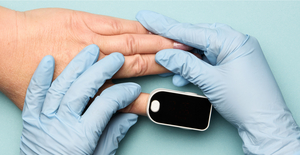Inflammation Marker Testing near me in University at Buffalo, New York
Own a clinic? Add your location.
Help patients book appointments with you on Solv. It's free!
0 instant-book locations
Excelsior Express
Excelsior Express

WellNow Urgent Care, Cheektowaga
WellNow Urgent Care
Western New York Immediate Care, Orchard Park
Western New York Immediate Care

WellNow Urgent Care, Batavia
WellNow Urgent Care
Own a clinic? Add your location.
Help patients book appointments with you on Solv. It's free!
About Inflammation Marker Testing
Inflammation Marker Testing is a group of diagnostic tests that measure various markers in the blood to assess the presence and severity of inflammation in the body. Inflammation is a natural response of the immune system to infections and injuries. However, chronic inflammation may indicate an underlying health condition, such as autoimmune diseases, infections, or certain cancers. Inflammation Marker Testing plays a crucial role in identifying and monitoring inflammatory conditions, allowing healthcare providers to formulate appropriate treatment plans.
Who Should Get Tested
If you reside in University at Buffalo, New York, and have symptoms suggestive of chronic inflammation, such as persistent pain, fever, fatigue, or unexplained weight loss, Inflammation Marker Testing is recommended. Additionally, individuals with a history of autoimmune disorders or those undergoing treatment for inflammatory conditions may benefit from these tests to assess disease activity and response to therapy.
Tests Included in Inflammation Marker Testing
Inflammation Marker Testing may include:
- C-reactive Protein (CRP) Test
- Erythrocyte Sedimentation Rate (ESR) Test
- Complete Blood Count (CBC) with Differential
- Other markers such as Interleukin-6 (IL-6) and Tumor Necrosis Factor-alpha (TNF-alpha)
Interpreting the Results
The interpretation of Inflammation Marker Testing results involves evaluating the levels of specific markers in the blood. Elevated levels of CRP, ESR, and other inflammatory markers may indicate the presence of inflammation and the severity of the inflammatory response. These results help healthcare providers diagnose and manage inflammatory conditions.
Importance of Inflammation Marker Testing
Inflammation Marker Testing is important for:
- Diagnosing and monitoring inflammatory conditions
- Assessing disease activity and treatment response
- Identifying potential underlying causes of chronic inflammation
- Guiding treatment decisions and adjusting therapy as needed
Following the Test
After Inflammation Marker Testing, healthcare providers discuss the results with individuals and develop a comprehensive treatment plan based on the specific inflammatory condition. Treatment may involve anti-inflammatory medications, immunosuppressive drugs, lifestyle modifications, and regular follow-up to monitor disease progression.
Inflammation Marker Testing is a valuable tool for healthcare providers in University at Buffalo, New York, to assess and manage inflammatory conditions effectively, leading to improved patient outcomes and quality of life.
Inflammation Marker Test FAQs
Where is the best place to get inflammation marker testing in University at Buffalo?
Inflammation marker testing in University at Buffalo is available at medical laboratories, rheumatologists' offices, and primary care offices. Some urgent care centers may also offer this service. Consider the cost and health insurance coverage. There are approximately 5 locations in University at Buffalo where you can schedule an appointment for inflammation marker testing.Who should get tested for inflammation markers?
Individuals with chronic inflammatory conditions or unexplained symptoms may undergo inflammation marker testing to assess the body's inflammatory response and aid in diagnosis and treatment.How much does inflammation marker testing cost in University at Buffalo?
Inflammation marker testing cost in University at Buffalo may have varying costs. Health insurance coverage varies by plan, and the cost can differ between urgent care centers and medical labs. To get specific pricing, contact nearby labs. 5 locations in University at Buffalo offer this test.Will health insurance cover inflammation marker testing?
Health insurance coverage for inflammation marker testing can vary based on your insurance plan. Some plans cover this testing when medically necessary and approved by a physician. However, it's essential to check with your insurance provider to understand the specific coverage, any potential requirements like pre-authorization or physician approval, and if the test is covered at both medical labs and urgent care centers.How do I make an appointment for inflammation marker testing in University at Buffalo?
Solv makes it hassle-free to schedule inflammation marker testing in University at Buffalo. Our platform lets you discover nearby urgent care centers and medical labs providing this service. With same day and next day availability, you can easily find a suitable appointment for your test. Use our website or mobile app to quickly book your inflammation marker testing appointment.

Updated on Dec 25, 2025
Related Searches
Ear Wax Removal in University at Buffalo
Sports Physicals in University at Buffalo
A1C Test in University at Buffalo
Allergy Testing in University at Buffalo
Basic Metabolic Panel in University at Buffalo
Blood Test in University at Buffalo
CMP Test in University at Buffalo
Cholesterol Test in University at Buffalo
DNA Test in University at Buffalo
Diabetes Test in University at Buffalo
Diagnostic Test in University at Buffalo
Drug Test in University at Buffalo
Flu Test in University at Buffalo
Glucose Test in University at Buffalo
H Pylori Test in University at Buffalo
Hepatitis test in University at Buffalo
Lab Tests in University at Buffalo
Mono Test in University at Buffalo
Pregnancy Test in University at Buffalo
Pulmonary Function Test in University at Buffalo
Aetna Urgent Care
Blue Cross Blue Shield Urgent Care
Cigna Urgent Care
COVID-19
Flu
United Health Urgent Care
» All services in University at BuffaloFind inflammation marker test
Nearby cities
More
Everyday Healthcare, Simplified
Expert advice to help you live your best life







